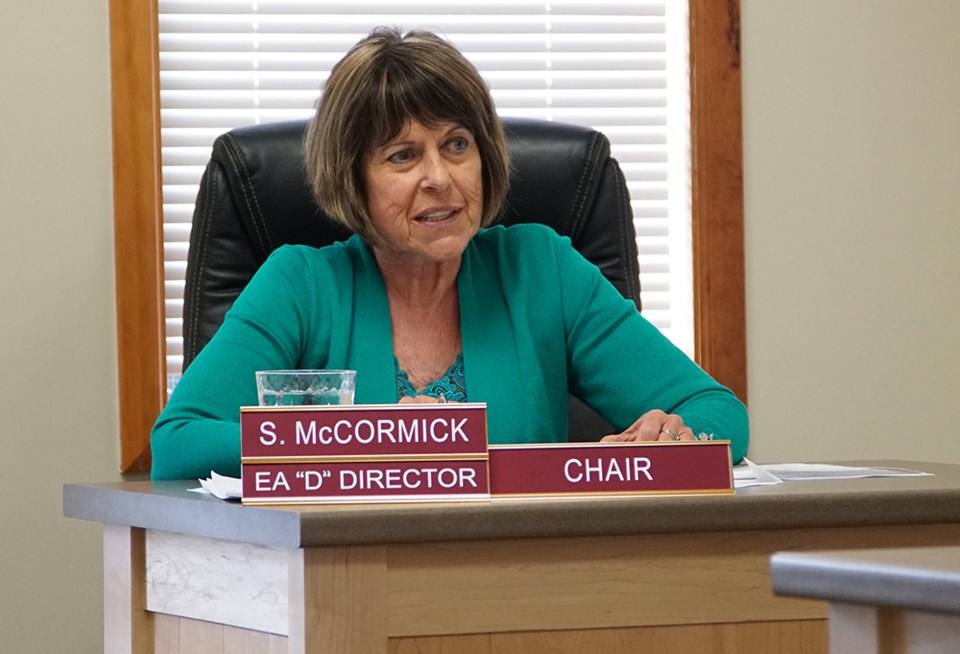qathet Regional District’s (qRD) committee of the whole has received an extensive report on review of rural housing solutions prepared by staff.
The report was reviewed at the March 28 committee of the whole meeting. According to a staff report, a key theme that emerged from research is that the lack of water and sewer servicing, basic services and community amenities means rural areas are not appropriate for high-density or affordable housing developments. The report stated that as a result, development is primarily directed to municipalities and urban centres where services are readily available and accessible.
“Nevertheless, regional districts are still looking at increasing density and expanding housing options where possible, pursuing regional partnerships, and providing educational resources,” the report stated.
Electoral Area E director Andrew Fall thanked staff for the report and said it was a useful summary. He said he was going to pass it on to the local trust committee on Lasqueti Island, which, he said, has a housing crisis.
“The report is really useful to highlight where increased housing makes sense,” said Fall. “It’s easy to talk about the need, but it’s much different when you start saying how exactly you do it and what are the actual decisions.”
Electoral Area D director and committee chair Sandy McCormick said the report was thorough. She said staff had done a lot of in-depth research and she appreciated it.
“As each area reviews its official community plan and updates those plans, this document is something that those committees can consider what is available and what they want to do,” added McCormick.
She said she was encouraged by the number of options, but discouraged on the other hand by the number available to rural areas because most of the options seem to apply more to municipalities than electoral areas.
Electoral Area B director Mark Gisborne said one of the main parts of the staff report was that a lot of the solutions around housing affect urban areas.
“I’m trying to wrap my head around the rural electoral area solutions,” said Gisborne. “Vancouver Coastal Health regulations may restrict multiple housing units from being developed on single lots around water and septic,” said Gisborne. “A key thing that emerged from staff’s research is that the lack of water and sewer servicing is one of the main restrictions in the rural electoral areas for developing housing diversity.
“In the planning committee, a common concern that is expressed around increasing density is potential for groundwater contamination with the increase of domestic sewage. Quoting the report, domestic sewage or effluent is a potential health hazard and must be treated properly before entering surface or groundwater to protect drinking water sources from contamination. Owners of parcels must ensure all domestic sewage originating from any structure is discharged into a public sewer, holding tank or onsite sewage system and does not cause a health hazard.”
Gisborne said the report states that onsite septic systems are built to accommodate specific volumes or flow rate of wastewater and the septic system capacity is determined by the number of bedrooms and total floor area. He said what that means is the septic system is not based on the number of dwelling units, it’s on the floor area, which is something that has been discussed at the planning committee.
Gisborne said the strategic plan states the regional district focuses on diversity of housing throughout the region. He said where there are official community plan policies that state dwelling units per hectare, it doesn’t have as much diversity as floor area per hectare.
“The staff report has highlighted the challenge around increasing density or residential flexibility in rural areas,” said Gisborne. “It’s water, sewer and floor area.”
Electoral Area A director Jason Lennox mentioned a staff recommendation that qRD partner with external housing facilitators such as Happipad, which is an online home-sharing or co-living platform that seeks to utilize the existing housing stock by providing homeowners the opportunity to rent out spare bedrooms, according to the staff report.
Manager of planning services Laura Roddan said Happipad presents a great opportunity for this region and has had a lot of success linking elderly people who are over-housed with empty bedrooms for younger people needing rentals.
“It provides a lot of benefits for both parties,” added Roddan.
The committee unanimously voted for the housing report to be entered into minutes and filed.
Join the Peak's email list for the top headlines right in your inbox Monday to Friday.


